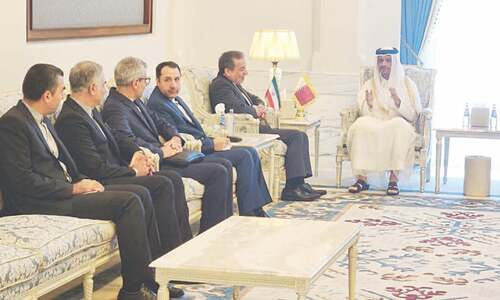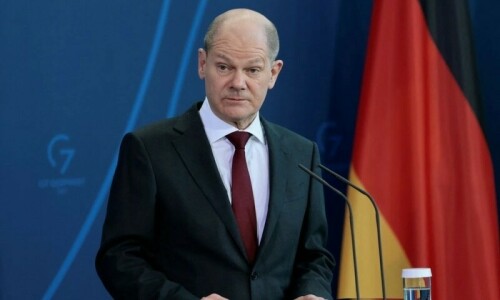The time has come to prevent the nightmare scenario of a nuclear attack. The rhetoric of international leaders about the spread of nuclear weapons and materials has not been matched by enough concrete action , even as Osama bin Laden declares that it is his "religious duty" to acquire and use a nuclear weapon against the west.
As the G8 leaders meet in Sea Island, Georgia, we urge them to put aside their differences over Iraq and unite to implement a comprehensive non-proliferation strategy that includes concrete steps and increased financial commitments to control the spread of bomb-making materials and thwart the ambitions of those who would acquire them.
First, the G8 nations - Canada, France, Germany, Italy, Japan, Russia, Britain and the United States - must fulfil their pledge to raise $20bn to fund the G8 global partnership against the spread of weapons and materials of mass destruction.
Still $3bn short, this important effort helps Russia and other countries safely store and dispose of chemical and nuclear weapon materials. Even if the pledges were fulfilled, there still would not be enough money to get the job done.
Securing the nuclear legacy of Russia alone will cost $30bn, and there are other stockpiles of inadequately secured highly enriched uranium and weapons-grade plutonium around the world.
Presidents George W. Bush and Vladimir Putin have launched a programme designed to secure fissile materials across the globe. But their plan will take 10 years to complete, during which time terrorists will still be able to collect fissile materials for a bomb.
Our second recommendation therefore is that the G8 should commit itself to a far more aggressive timetable - within the next four or five years - for completing this important work.
Third, the G8 nations must bring to bear all the incentives and sanctions they have at their disposal to stop proliferation. This includes closing the nuclear nonproliferation treaty loophole that enables states like North Korea to develop nuclear weapons under the cover of programmes to produce nuclear energy.
Fourth, the G8 leaders should pledge themselves to active, person-to-person diplomacy that can help reduce the regional tensions that could lead to the use of nuclear weapons.
For example, the scaling back of the nuclear threat between India and Pakistan may have opened the door to further steps to reduce the risks of a nuclear exchange.
Fifth, the leaders must commit their nations to develop and maintain a global network linking intelligence and export control efforts with border, port and airport security to ensure that nuclear materials and technology cannot be moved undetected.
Finally, although France, Russia, Britain and the United States have taken good steps to reduce their nuclear arsenals, more must be done. A failure in this regard would encourage states that do not have nuclear weapons to rebel against non- proliferation norms out of dissatisfaction with what they perceive to be a double standard: some states get nuclear weapons, while others do not.
We call on President Bush and the United States, therefore, to stop developing new nuclear weapons such as the so-called bunker-buster. The United States should also sign the comprehensive test ban treaty.
Together, the United States and Britain should support a fissile materials cut-off treaty that would end the production of fissile materials for use in nuclear weapons.
Given their nuclear weapons capacities, the US and European countries have a special responsibility to ensure that these terrible weapons do not spread further. Before they can fulfil this responsibility, however, they must be seen as credible proponents of nuclear non-proliferation.
The steps described here would help restore credibility to the calls for global nuclear non-proliferation, and enable the US and Europe to exercise the leadership that is so desperately needed to fight proliferation.
Imagine the G8 meeting that would follow a nuclear incident. The leaders of the industrialized world would be compelled to explain how such a terrible tragedy could have happened. It is their challenge - and responsibility - to take the necessary steps now to protect us all. -Dawn/The Guardian News Service.
(These proposals were developed by Building Global Alliances for the 21st Century; the article first appeared in the Los Angeles Times. Madeleine Albright is a former US secretary of state, Robin Cook, British MP, resigned as foreign secretary over the Iraq war).













































Dear visitor, the comments section is undergoing an overhaul and will return soon.